Urban Music: The Strides Of Mr. Leo
- Par Dilian WELLENG
- 07 avril 2021 13:09
- 0 Likes
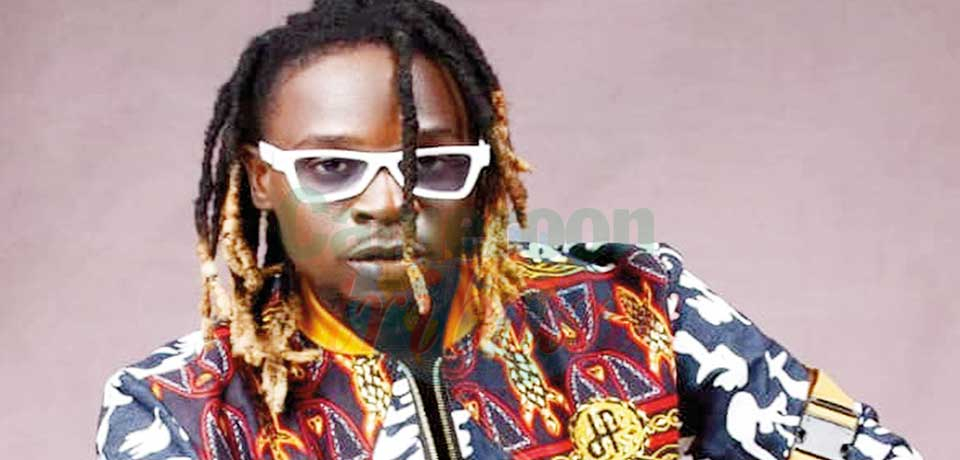
From a military ghetto in Buea, South West region, Fonyuy Leonard Nsohburinka known by the World as Mr. Leo, has now become a household name in Cameroon’s music industry.
From a military ghetto in Buea, South West region, Fonyuy Leonard Nsohburinka known by the World as Mr. Leo, has now become a household name in Cameroon’s music industry. The star singer who hails from Nso, in the North West region, contrary to other artists who developed long dreams of being stars from childhood, rather had a special attraction for painting and football.
Music was never in the offing but destiny, as they say, followed him by bringing Salatiel and Blaise B. into his life. The duo sweet-talked Mr. Leo to join the church choir. It was from there that the urban music star was born. For several years, he had to deal with family pressure, rejection and critics. But then, the seed he had planted and watered for some years yielded his debut single titled "E Go Better."
The single had just the right words and style to blow the kick off whistle of his career. The growth continued geometrically. In 2019 he slowed down to give way for Kameni and Gomez, whom he had been grooming for a while. During this period, he went back to his drawing board and strategized. Now, the star has come back with a whole new personality, a new concept and a new touch to his music.
He is currently making his way into inspirational music, one which holds the African heritage in high esteem. Less than one week ago, Mr. Leo released, “Jéi Jéi” which he says is just a tip of the iceberg and a sneak peak of the new him. Discover more exciting insights of Mr. Leo in this exclusive interview he granted to Cameroon Tribune.
You just released a new single titled, “Jéi Jéi”; an indication that you are coping in this coronavirus period. What is the secret and what are you doing as an artist to preach against the virus?
Personally, I find every obstacle as an opportunity to get better and create more positive impact on my person and on the society. Covid-19 has been a great challenge; one which completely altered my daily routine as an artist. To survive during this period, I had to get back on the drawing board with my team to figure out how to keep business moving and most especially how to play an active role in the fight against the pandemic. Amongst others, I initiated a music project titled, “Zero Corona”, featuring ten artistes from different ends of Africa to sing about the coronavirus outbreak and sensitise the public about this deadly pandemic. Of course Covid-19 resulted in months of lockdowns which gave me free time on my plate, time which I used judiciously to work on some magical songs for my “Lion Of Africa Album”.
You are one of the young Cameroonian artists making headline news in urban music, how do you evaluate the growth of this genre of music in Cameroon?
First, a huge applause to everyone out there working tirelessly to put Cameroon on the map as far as music is concerned. I happen to be one of those young persons who managed to work their way to the top of the chain without a capital. Therefore, I can fit in the shoes of these young talents struggling to live their passion, facing criticism from the public, rejection from family etc. I call them soldiers and I encourage them to keep fighting. Urban music has taken over Cameroon over the past 10 years. We have had people like Salatiel, Jovi, Stanley Enow, Daphne, Magasco, Blanche Bailly, Locko, Tenor etc represent Cameroon on international platforms with urban music. To me, the growth has been impressive but we could do better if and only if Cameroon could attribute a little more value to the entertainment sector. An artist is a business that needs investment and a capital to be able to yield profit. With little or no capital, we have been able to come this far. I think it is high time these young artistes start getting calls from companies, investors and of course the government. Its high time Cameroon invests on these talents; they have the potential to take the country further. If football could do it, I believe music, movies, comedy and dance can do it too.
In the past, other genres of music as Makossa was taking the centre stage, how do you explain the fact that urban music is currently taking the lead?
Lack of mentorship… that is the key reason why genres like makossa and bikutsi almost died down. I have so much respect for an artist like Petit Pays because he passed on his knowledge to younger ones like Mathematic, Sami Diko etc who are holding it up today. We grew up listening to American music and Nigerian music. We learnt how to make music their way and today we are able to fuse those urban sounds with our traditional sounds like njang, makossa, bikutsi, and of course make use of our language diversity, which gives us our identity. I think if we want to ensure continuity and sustainability, we must teach the next generation what we know.
You recently created your own Label named “Lionn Production”. What motivated you to do this and what specificities are you looking for in artists that you sign into the label?
Through my music journey, I always wished I had someone to hold my hand, invest in my art and guide me through. Someone who understands the business understands the market and has the resources required. Together with my brother Salatiel, we struggled through the dark to find the light. Creating Lionn Production is just my way of helping young talents so they do not go through that same dark path. I can be able to mentor them, teach them what I know and help them avoid the mistakes I made. Today, Lionn Production has two amazing talents Kameni and Gomez Oba who have fast become household names. As per my criteria for signing artists, it’s very spiritual. We are supposed to have a connection first. Secondly, I have a competent team of professionals who assess every move the label makes.
Cameroonian urban artists are often criticised for copying the Nigerian style of music. What special touch do you put in your sounds to make the difference?
What do you expect from someone who grew up listening to Nigerian music on radio, Tv, Clubs etc??? Most young Cameroonians are influenced by foreign music because it is what they are being fed with. Nigeria for example has the financial power to produce and promote new hits every single month. This is because the entertainment industry there is booming with investments from left and right. Do same in Cameroon and trust me within one year you won’t hear any foreign music on these streets. Cameroon has incredible talents, artists who can give you new hits every single day. All they lack is the ability to transform this potential into actual projects, promote it so it reaches the fans and of course market it to generate income. Personally, my strength in music is uniqueness and originality. My sound and my lyrics is guided by where I come from, the mentality of my people, the languages they speak and their root story. My music valorises my culture, which is my identity.
Some fans have been complaining that you only collaborate with artists excelling in your genre of music. Do you have any plans of looking out of the urban genre to collaborate with artists maybe in the Bikutsi or Makossa genres?
As I always say, music to me is spiritual. We must connect at a certain level before we can get on a project together. If it has not happened so far, it simply means it is not the appointed time yet but I am very open to working with any artist no matter the genre of music. That notwithstanding, we have had some interesting collaborations between old school and new school artistes lately. We just released a project under Lionn Production titled Gokoma Vibe, a collaboration between Gomez Oba and Hugo Nyame who is a makossa veteran. We have also had other artists like Fhish collaborating with Longue Longue, a Ko-C collaboration with bikutsi diva Coco Argentee, a Magasco collaboration with Lady Ponce etc. This is an indication that the urban artists are gradually finding their way back to their roots and if the Makossa and Bikutsi legends did not find it necessary to teach us what they know, we will go to them and learn what we need to know in order to keep the culture alive.
Cet article complet est réservé aux abonnés
Déjà abonné ? Identifiez-vous >
Accédez en illimité à Cameroon Tribune Digital à partir de 26250 FCFA
Je M'abonne1 minute suffit pour vous abonner à Cameroon Tribune Digital !
- Votre numéro spécial cameroon-tribune en version numérique
- Des encarts
- Des appels d'offres exclusives
- D'avant-première (accès 24h avant la publication)
- Des éditions consultables sur tous supports (smartphone, tablettes, PC)






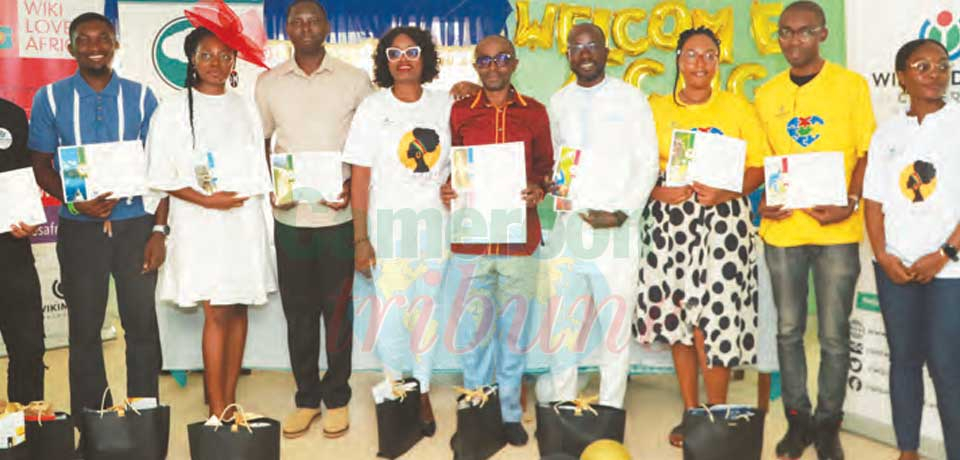
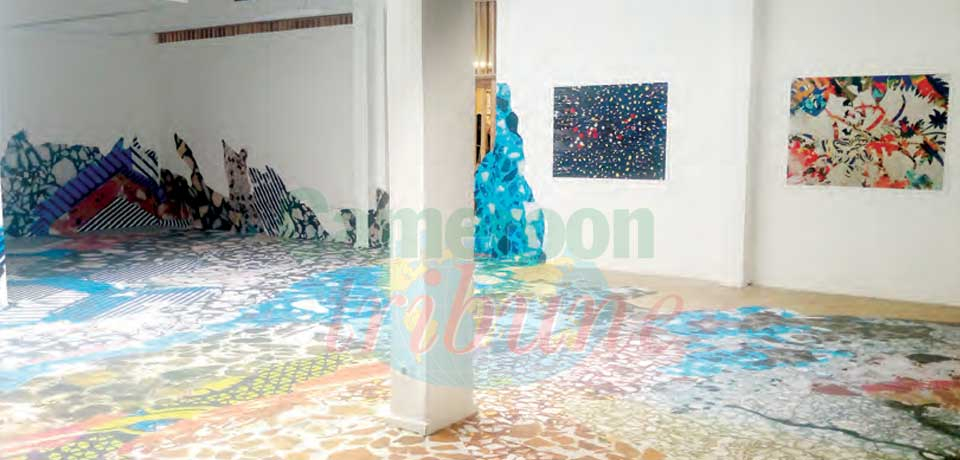
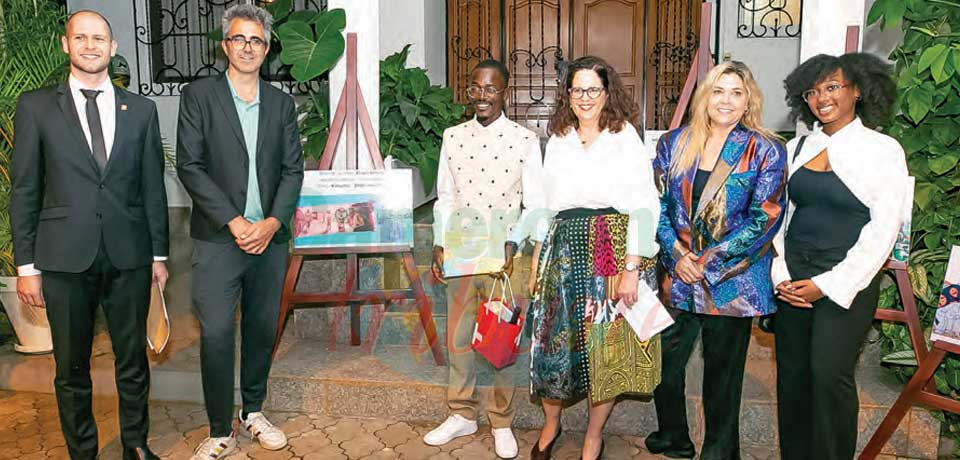
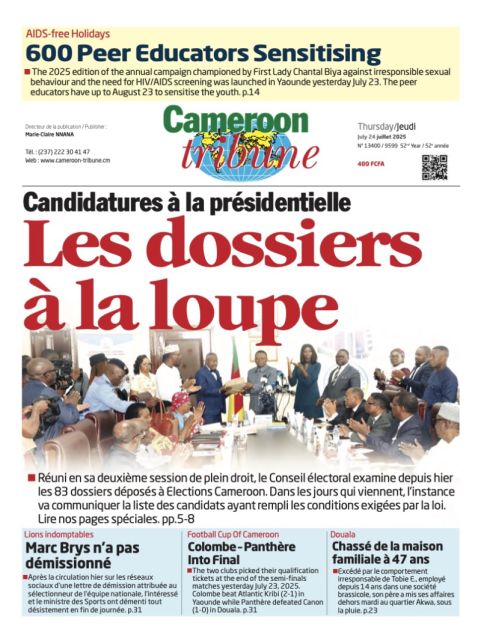




Commentaires